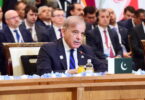Syed Adnan
PESHAWAR- A decade-long saga of irregularities and misuse of authority has plagued the drug control and pharmacy services sector in Khyber Pakhtunkhwa, implicating several influential figures and a compromised system.
For over ten years, a group of self-interested elements has hijacked the drug control sector in the province, enjoying systemic protection that suggests the absence of law, merit, and justice. A notable figure among these is an officer who was originally recruited as a hospital pharmacist. This individual, through unlawful means, has held three key positions-Deputy Secretary Drugs, Secretary of the Provincial Quality Control Board, and Secretary of the Pharmacy Council-for decades, in clear violation of service rules and ground laws.
This officer, along with a select group of subordinates, has manipulated the entire system at both provincial and federal levels, disregarding the Drug Act, Pharmacy Act, and Civil Servants Act. They have even ignored court judgments, using government files and loyal officers to further their nefarious agenda successfully for years.
In 2016/2017, three distinct cadres-hospital pharmacists, drug inspectors, and drug analysts-were illegally merged to establish an independent Directorate of Drug Control and Pharmacy Services, parallel to the Director General Health Services. This directorate, created with just 63 officers, strategically positioned junior officers without service rules, keeping most posts vacant to maintain control over drug management and procurement.
A significant revelation is that the officer at the helm of this directorate, despite being a Grade 18 officer with less than 13 years of service, holds two additional positions-Provincial Chief Drug Inspector and Project Director of Mobile Drug Lab-through the aid of the Deputy Secretary Drugs. These positions involve handling government drug procurement contracts worth billions, with substantial kickbacks reportedly being shared among them.
Since the establishment of the province’s health system, drug control has traditionally been under the DG Health Services. However, in 2013, with the help of a senior minister, this group took control. Last year, when the DG Health protested the exclusion from hospital and district health offices’ drug procurement, a major campaign was launched against him.
A letter addressed to the Chief Minister and Chief Secretary reveals that this directorate, created based on the illegal merger, has faced multiple writ petitions in the Peshawar High Court and Khyber Pakhtunkhwa Service Tribunal, all ruling against the merger and the directorate. Yet, due to the presence of certain officers, these judgments have not been implemented. Furthermore, a Supreme Court decision also went against the government, but these judgments were concealed from the cabinet, misleading the entire system.
Interestingly, the directorate was established by a caretaker government, which lacked the mandate to do so. The Finance Department’s former Secretary Shakeel Qadir and Administration’s Arshad Majid have rejected this directorate, which could not be notified in the Gazette for four years due to court orders.
Additionally, this group has pushed through illicit amendments in the drug rules, leading to the creation of over 100 ghost Category B pharmacy institutes, run by the officers themselves, generating millions. These amendments have also jeopardized the livelihoods of fifty thousand chemists by revoking their licenses, under the guise of ‘good governance’-a false narrative.
Recent High Court rulings have favored the chemists, exposing the fraudulent amendments. Despite a cabinet decision limiting tenure at a single station to two years, an officer has remained at the same station for twenty years, a record across Pakistan. This group has consistently manipulated higher authorities, including the Health Secretary, Health Minister, Chief Secretary, Chief Minister, and the cabinet, concealing the truth and portraying an ‘all is well’ scenario.







